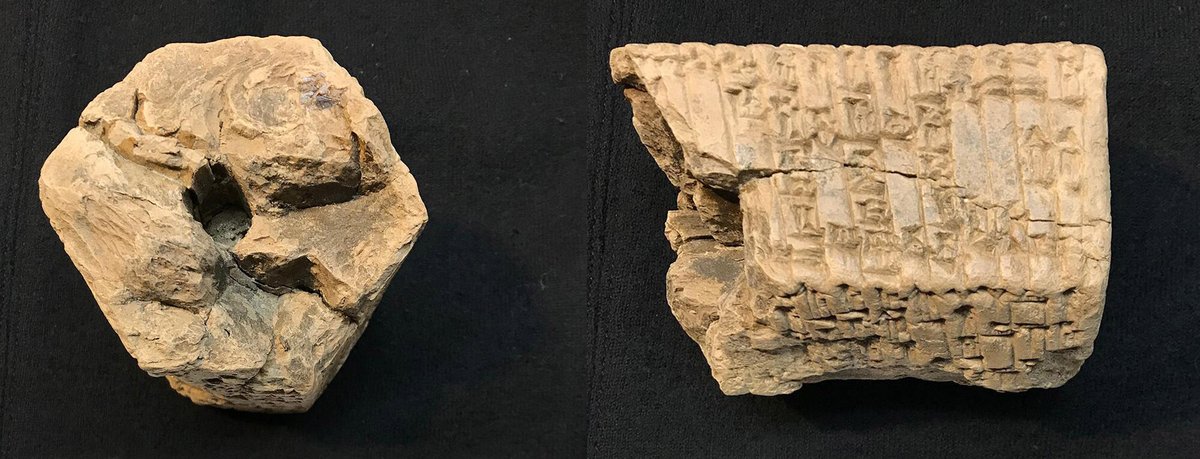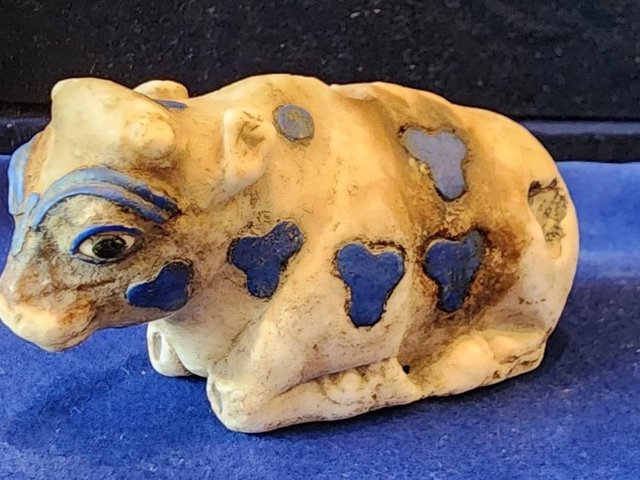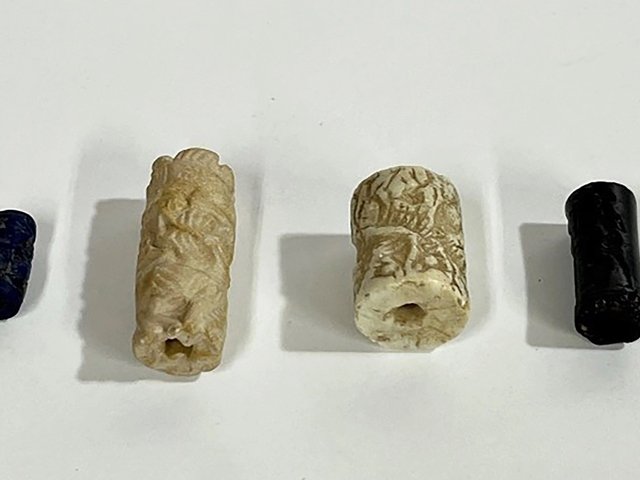The US Department of Homeland Security’s Immigration and Customs Enforcement (ICE) repatriated two ancient artefacts on 20 January, returning them both to Iraq, with a repatriation ceremony taking place at the Iraqi consulate in Los Angeles. The two items are a cuneiform prism that was used as a classroom teaching tool as long as 4,000 years ago, and a partial cuneiform stone tablet, also an ancient writing implement that dates back thousands of years.
A Sumerian literature expert told ICE that the cuneiform prism dates back to the Old Babylonian Period, between 2000BCE-1600BCE, and likely originated in what is modern-day Iraq. The inscriptions on the prism were used to teach children in Babylonian scribal schools how to write, and this is the third known example of a prism that contains such text. The artifact was discovered in a warehouse last year, and while its deceased owner had wanted it donated to an institutional collection, because there was no proof of title, it was handed over to Homeland Security instead.
The partial stone tablet was purchased at an online auction house by a collector in July 2020 but was seized by US Customs and Border Protection officers after it was noted that the cuneiform tablet lacked any proper paperwork. It’s believed to be thousands of years old and experts suspect it may have been taken from its country of origin amidst looting that occurred in the early 1900s. No charges are pending for either the seller or the buyer.
“Investigating cultural property and antiquities is a unique part of our mission at Homeland Security Investigations,” said Eddy Wang of the Los Angeles branch of Homeland Security Investigations, in a statement.
“We are proud to return these artifacts, steeped in history, to the people of Iraq,” Salwan Sinjaree, consul general of Iraq in Los Angeles, added. "We appreciate HSI’s ongoing efforts and coordination to repatriate two extremely rare ancient Iraqi artifacts.”




